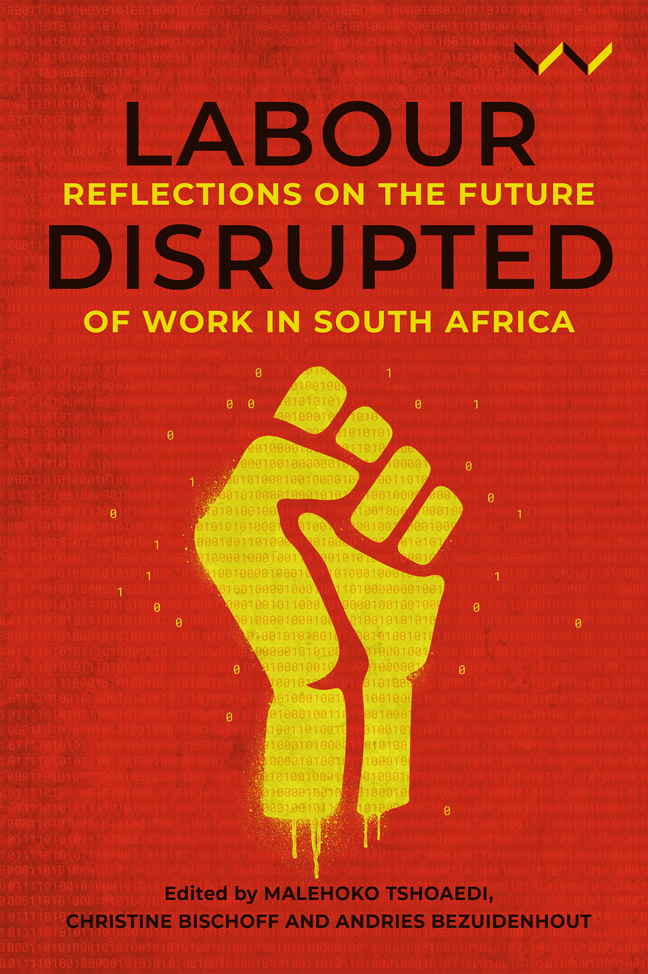Book contents
- Frontmatter
- Contents
- Figures and Tables
- Acknowledgement
- Acronyms
- Introduction: Disruptions and New Directions in South African Labour Studies
- Chapter 1 Fragmented Labour Movement, Fragmented Labour Studies: New Directions for Research and Theory
- PART I Changing Solidarities
- PART II Technology and Work
- PART III New Forms of Organising
- PART IV Labour and Lockdown
- Conclusion: Questions, Answers and New Directions
- Contributors
- Index
Chapter 10 - Social Capital Unionism and Empowerment: A Case of Solidarity Union at ArcelorMittal Vanderbijlpark
Published online by Cambridge University Press: 01 March 2024
- Frontmatter
- Contents
- Figures and Tables
- Acknowledgement
- Acronyms
- Introduction: Disruptions and New Directions in South African Labour Studies
- Chapter 1 Fragmented Labour Movement, Fragmented Labour Studies: New Directions for Research and Theory
- PART I Changing Solidarities
- PART II Technology and Work
- PART III New Forms of Organising
- PART IV Labour and Lockdown
- Conclusion: Questions, Answers and New Directions
- Contributors
- Index
Summary
INTRODUCTION
Mpho Mmadi's chapter in this volume makes a case for a revitalised form of social movement unionism. The aim of this chapter is to disrupt this perspective by putting on the table the idea of social capital unionism (SCU). As pointed out by Lucien van der Walt earlier in this volume, there has been very little focus in South African labour studies on trade unions beyond the tradition of the Congress of South African Trade Unions (Cosatu). This chapter focuses on the trade union Solidarity (also known by its Afrikaans name, Solidariteit) to explore an example of SCU. Since the dawn of economic liberalism in South Africa, there have been many debates about how the declining role of the ‘organising model’ of trade unions affects vulnerable groups of workers – the casuals, part-timers and contracted workers. Historically, trade unions were founded on the principle of worker empowerment by winning rights for members such as medical and pension benefits. However, the loss of capacity to organise members and recruit new ones reflects the breakdown of the dense networks of strong social ties on which shared interests, solidarity and collective action were traditionally based. Bruce Nissen and Paul Jarley (2005) maintain that trade unions must go beyond simple conflict escalation techniques and employ more sustainable strategies for recreating community in the workplace.
Typically for South Africa, following the 1990s market-led reforms, trade unions have embarked on wealth creation or ‘labour capitalism’ by establishing trade union investment as a way to generate revenue to improve the lives of members and their dependents through benefits such as bursaries, pension funds and funeral schemes (Iheduru 2001). However, this model has been marred by issues of financial mismanagement, factionalism and a lack of control by members over their own investment companies. This chapter illustrates that business unionism must be accompanied by social capital unionism that focuses on organising around people to build dense social networks among members, as well as personal relationships through frequent interactions between members both inside and outside of work.
The qualitative approach employed for this research consisted of a combination of in-depth interviews and focus groups with white workers, management, trade union officials and community representatives; archival sources, consisting of reports, newsletters, newspaper articles and speeches were also explored.
- Type
- Chapter
- Information
- Labour DisruptedReflections on the Future of Work in South Africa, pp. 205 - 228Publisher: Wits University PressPrint publication year: 2023



